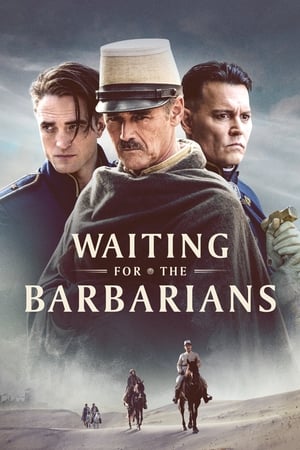
Waiting for the Barbarians
Adapted by Nobel Prize winning author J.M. Coetzee from his own book, “Waiting for the Barbarians” is a timely screen retelling of the darkest (and most the most cruel) aspects of colonialism. This period film sadly reflects issues many are dealing with in present day: a society that’s relentless in its quest to oppress “the other.” An isolated frontier settlement on the border of an unnamed empire sets the stage for the epic story of a Magistrate (Mark Rylance), a kind soul who lives a routine existence respecting the rule of law, and the disquieting arrival of Colonel Joll (Johnny Depp), a menacing man that quickly turns things upside down. Joll and his minions (including Robert Pattinson as Officer Mandel) have been tasked with reporting the activities of the ‘barbarians’ — and their methods are ruthless. The Colonel terrorizes people during violent interrogations, causing the Magistrate to question his own loyalty to the empire. Eventually, he embraces kindness and attempts to rescue a young woman (Gana Bayarsaikhan) who has been abused by Joll and return her to her family. The script is laid out appropriately, with clear introductions of the characters and an easy-to-follow story. The film is told in chapters and seasons (“The Return,” set in the Spring, is the most visually stunning). It’s filled with pretty shots (from director Ciro Guerra) and gorgeous cinematography (by Chris Menges), and the period set design and costumes are as detailed as they are handsome. It’s not difficult at all to overlook the (sometimes) slow pacing because the film is so well directed. Every performance here is stellar as well, with a standout turn from Rylance. He makes it easy for viewers to sympathize with his character’s lone beacon of compassion in a violent world. He brings the idea about the way empires feel they must invent enemies to remain relevant to the most basic human level, and that’s what ultimately becomes so effective about “Waiting for the Barbarians.”
